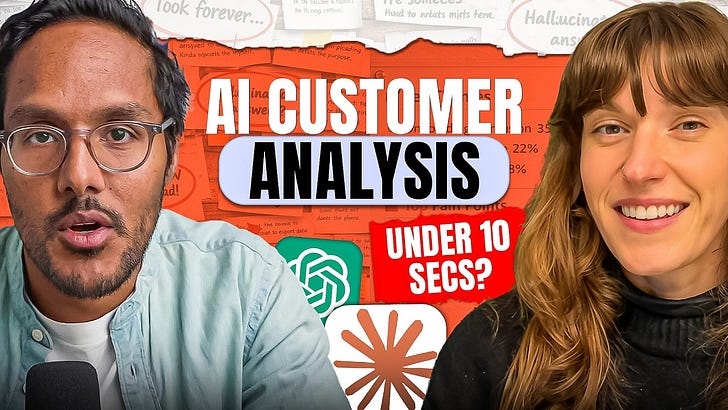Listen now on Apple, Spotify, and YouTube.
Brought to you by:
Zeda.io: Discovery platform to turn your Voice of Customer into product insights
Attio: The next generation CRM
Have you ever thought about changing the product you work on every few months? Mirela Mus had a similar idea - and that inspired her to start a Product Agency for Interim Product Work.
Mirela is the founder and CPO of Product People, the largest Fractional Product Agency. She has 12+ years of Product Management experience at places such as WHO and Zalando.
In this episode, Mirela breaks down everything you need to know about Interim product work, the Product Agency business model, and the key differences between working at an agency vs independently as a freelancer.
Specifically, we cover:
Overview of Product Agency Market | 02:04
How did Product People Scale so Quickly? | 25:06
Working Fractionally Alone vs at an Agency | 32:15
How to Succeed at a Fractional Product Agency | 39:31
Who Should Hire a Fractional Product Agency | 48:13
Here are the Key Takeaways
Some of the key lessons from our conversation:
1. Who Should Hire a Product Agency
Typically, cases when companies need to hire interim product support instead of a full-time employee are:
Facing a PM gap: Either through maternity or a person being forced to leave, or unexpectedly laving
Companies Aiming for Transformation: Companies, rising from being a small startup to a series D and then listed publicly, face issues around transformation in lots of areas.
Mergers and Acquisitions: Companies, that have a capacity surge post merger/acquisition, need to clear a few things off their deck without increasing their headcount
Interim Product support from an agency can also come in handy for discovering a new revenue stream, fixing leaky conversion funnels or improving overall customer retention.
2. What It’s Like to Work at an Agency
Product People covers full-time role with 80% of the allocation. They charge for one headcount similar to other agencies but staff 2 people for the role - a Senior PM supported by an Associate PM.
This strategy, while sounding counterintuitive, is actually extremely effective as it enables:
Structure to learn product skills
Coverage for a person in case they are ill or on a vacation
3. Working Through an Agency v/s Working As a Freelancer
People working at Product Agencies forego worries around billing, sales, and payments — as they are under the payroll of the company.
Product agencies also offer a structured path and career progression. Added together, this enables a peace of mind and an ability to stay focussed.
Whereas, freelancers are more of a one person company where they need to do all the admin work and take the risks such as:
Legal risks
Non-payment issues
This can make you feel like you are constantly walking on a tightrope.
4. Agency Prices 25-40% More than Full-Time
Product agencies charge at a 25 to 40% premium. The basis for that is product agencies need to factor in costs and risks such as:
Contract termination
Benefits
Recruitment and Onboarding
Taxes and more
Check out the full episode for more details!
Referenced
Mirela’s company: Product People
Obviously Awesome: How to Nail Product Positioning so Customers Get It, Buy It, Love It by April Dunford
Mirela’s Favorite Book: Thinking in Bets
Mirela’s Favorite Writers:
Mirela’s Favourite Game: Polytopia
WeWTF by Scott Galloway
Transformed by Marty Cagan
Where to find Mirela
If you prefer to only get newsletter emails, unsubscribe from podcast emails here.
Up Next
We have some great podcasts coming from Maja Voje, Jaryd Hermann, and JJ Ramirez. I’m so excited to share them with all of you.
In the newsletter, check out this week’s piece if you haven’t yet: How to Improve Retention: The Ultimate Guide for Product Managers and Leaders.
Look out for these pieces up next:
How Lempire Grows
Market Deep Dive on Indian-Origin Tech Companies
I think you’re going to love them,
Aakash












